Institutional Context
Summary
The University of Derby makes a difference, impacting individual lives and communities. Our research informs social and economic change around the world and at home. Our talent drives innovation and opportunity, and for 170 years we have been part of the fabric of our city and our county.
Our graduates and academics power the region’s public sector, innovate across our city’s economy – from start-ups to the region’s industry giants – and research the issues that matter, locally and beyond, from the development of emerging technologies to influencing global sustainability.
As a champion of social mobility, we create routes to high-quality jobs by supporting organisations to innovate and grow into sustainable and productive businesses that will create the jobs of the future.
Institutional context
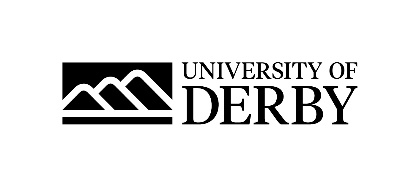
The University of Derby is the only higher education institution in Derbyshire and our Strategic Framework articulates our role of ‘Being a Force for Positive Impact’ on the economic, social, cultural, educational and environmental prosperity of our home.
In June 2022, we launched our Civic University Agreement alongside 15 key signatories:
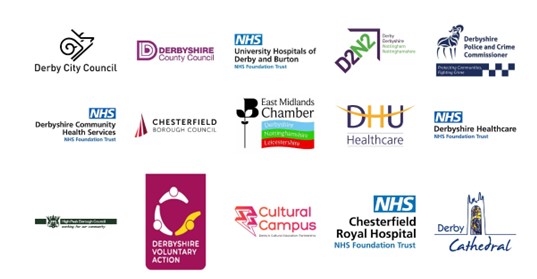
‘Opening Doors for Everyone’ is a key pillar of the University of Derby’s Strategic Framework which informs our approach to knowledge exchange. We believe in the transformational nature of education and, as a champion of social mobility, we strive to inspire and create opportunities for all.
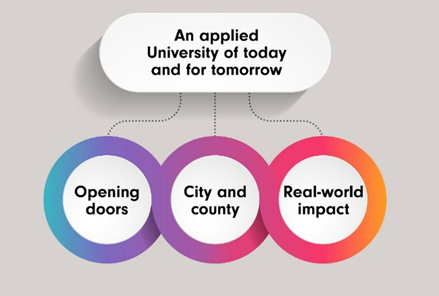
Our research and innovation activities are focused on delivering real-world impact. Our research is aligned around six themes that address some of the local, national and global challenges we face.
We provide specialist support and expertise to the key employment sectors in our regional economy. Our future focused approach is illustrated by our involvement in developing and launching a new Nuclear Skills Academy in Derby, the first of its kind. Also, leading the delivery of an Institute of Technology for the East Midlands with a focus on digital and green technologies.
We support SMEs to develop and realise their scale-up potential and we provide targeted innovation support through regional supply chains into the major manufacturers that are key to our regional productivity and sustainability.
Our ambitions for a ‘City of Growth’ include a flagship Business School in the heart of the City. Also, our central role in the development Derby’s Infinity Park as a hub for industrial research including co-location with the Nuclear Advanced Manufacturing Research Centre.
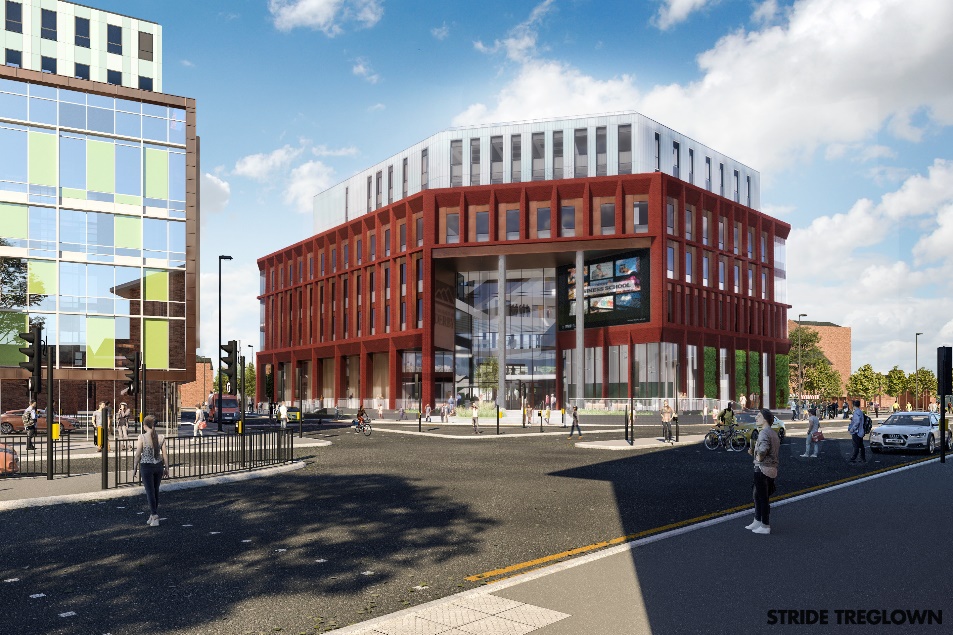
We have co-invested our own resources to deliver an ambitious programme of funded local growth programmes for businesses. We are actively involved in long-term knowledge exchange collaborations in many sectors including Innovate UK KTPs.
We provide significant support for the public and third sector (including health, education and policing) through our CPD, research and KE project activity but also through our active participation both regionally and nationally at a strategic and governance level.
UoD is a champion of the arts as a driver for positive change in communities. Our support for the cultural sector includes our highly community engaged Derby Theatre also our innovative S.H.E.D spin-out company.
Impact on our student experience and graduate outcomes is a critically important outcome of our knowledge exchange activity. We actively seek ways to link knowledge exchange projects and programmes back to our curriculum whether it be to inspire a graduate start-up or to create opportunities to enhance the employability of our students through rewarding placements and internships or our Student Legal Advice Centre which benefits the local community through free access to legal advice .
Collaboration is key to our strategic approach to knowledge exchange and needs are identified through active engagement with a range of stakeholder groups at a range of spatial levels.
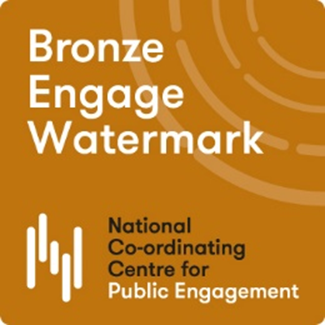
For further information, please send queries to urkeo@derby.ac.uk
Local Growth and Regeneration
Summary of approach
The University of Derby is the only higher education institution in Derbyshire and our Strategic Plan articulates our role of ‘Being a Force for Positive Impact’ on the economic, social, cultural, educational and environmental prosperity of our home. We are proud to have launched our University Civic Agreement with 15 regional co-signatories in June 2022.
Alongside regional and government partners, we have co-invested our own resources to deliver a significant project portfolio to stimulate local regeneration and business growth.
As a champion of social mobility, we strive to create progression routes to high quality job outcomes whilst supporting local firms to innovate and grow into sustainable and productive businesses that create high value employment – jobs of the future.
Aspect 1: Strategy
The University of Derby (UoD) is the only higher education institution in Derbyshire, therefore, our City and County are of primary strategic importance. We relish the civic responsibilities that this entails and our Strategic Plan articulates our role of ‘Being a Force for Positive Impact’ on the economic, social, cultural, educational and environmental prosperity of our home. Accordingly, the University of Derby was amongst the first universities to pledge a commitment to produce a Civic University Agreement and our Civic Agreement was launched in June 2022 alongside 15 signatories (Fig. 1). The development of this agreement involved extensive consultation with regional stakeholders and community groups via civic roadshows, meetings, events and surveys and our Agreement will be reviewed and updated annually.
Our Civic Agreement identifies 5 goals all of which inform our regional KE activity
Securing Our Future - the city and county’s economic growth
Driving Ambition & Positive Change
Making a Positive Environmental Impact
Supporting Health & Wellbeing
Investing in Culture as a Driver for Change

Fig.1
‘Opening Doors for Everyone’ is another key pillar of the University of Derby’s Strategic Framework which informs our strategic approach to local growth and regeneration. We believe in the transformational nature of education and, as a champion of social mobility, we strive to inspire and create opportunities for all. The Department for Education has identified Derby as a social mobility cold spot (316th in the Social Mobility Index in 2017). This imperative informs our approach to local growth and regeneration; striving to create progression routes to high quality job outcomes and supporting local firms to innovate and grow into sustainable and productive businesses that create high value employment – jobs of the future.
The Derby and Derbyshire sub-region is geographically, economically and socially diverse. There are a number of functional economic zones with varying drivers and capacity for growth. Collaboration is key to our strategic approach and local growth and regeneration needs are identified through active engagement with a range of stakeholder groups at a range of spatial levels.
Within our city, we collaborate closely with our City Council. As an anchor institution, we recognise the impact of our physical presence on the vibrancy and regeneration potential of our city.
Derby City’s Council Plan 2022-25 including ‘City of Growth’ continues to influence the development of a University Quarter in Derby and our central role in the development of Infinity Park and co-location with the Nuclear Advanced Manufacturing Research Centre. The ‘Vibrant City’ element of the Council’s plan informs our support for the cultural sector including our highly community engaged Derby Theatre, our innovative CivicLab and our input to City of Culture bids.
Across the wider Derbyshire sub-region, the University is a member of the Derbyshire Economic Partnership which has brought together economic development agencies and other relevant organisations to strengthen the economy and tackle deprivation through the county. Our engagement in the sub-region is further informed by participation in a variety of boards e.g., Infinity Park Development board, Development Corporation board and Town Deal boards.
Our campus network stretches from Derby City across to Chesterfield and Buxton in the north of the County. The major redevelopment of strategic sites in these Derbyshire towns (around the key employment sectors of health and tourism) has led to further collaborative working in response to specific local needs. For example, collaboration with Chesterfield Borough Council in response to the opportunities presented by HS2 phase 2a and partnership working with High Peak Borough Council on the regeneration of Buxton as a key town and tourist hub in the Peak District.
Derby and Derbyshire are situated within the D2N2 Local Economic Partnership. D2N2 is one of the largest LEPs in England with a population of more than 2 million. Alongside the two other HEIs in D2N2, we proactively participate in LEP structures e.g., our Provost Innovation & Research is a member of the LEP’s Innovation Advisory Board and we have supported the proposal for a Combined Mayoral Authority for our region which has now been approved by Government.
We actively engage with wider regional level structures both at strategic and delivery levels. Our engagement with the Midlands Engine partnership is predominantly co-ordinated through the Midlands Enterprise Universities group which works to drive productivity and growth in the Midlands through skills, innovation and enterprise.
Strategic partnerships are a key vehicle through which the University has developed deeper, collaborative relationships with regional stakeholders and businesses. For example, in 2020, the University entered into a strategic partnership with East Midlands Chamber and in 2022 a Strategic Partnership was signed with Bloc Digital, building on a strong KE relationship and Bloc being an anchor employer in the successful East Midlands Institute of Technology bid led by UoD.
Aspect 2: Activity
Since 2021, our research staff have collaborated across 6 Academic Themes aligned to some key regional challenges. This interdisciplinary approach brings our experts together and our Zero Carbon Theme Group provides an excellent example of how our applied research expertise is delivering regional impact.
Prof. Chris Sansom, our Zero Carbon research theme lead, is making significant contributions towards the D2N2 LEP’s ambitions for a green revolution to act as a catalyst for a more productive and inclusive economy. Specifically, working with the National Stone Centre to establish a Zero Carbon Visitor Centre at Wirksworth, incorporating solar assisted heating and cooling and heat pump technologies. In addition, a project with Bolsover District Council extracts heat from flooded and abandoned mine shafts, and a project with Derby City Council on low-cost interventions is to provide cooling for care homes during extreme temperature events, guided by feedback obtained from residents. Across the East Midlands, the Solar Energy Cluster is working closely with Lincolnshire County Council to assess the design, deployment, operation, maintenance and end-of-life recycling of large (>100MW) solar PV fields.
The University is an active member of the D2N2 LEP’s Low Carbon Growth Group and was a key partner alongside East Midlands Chamber of Commerce to deliver the Derbyshire Net Zero Accelerator pilot in 2022 (£363k over 7 months funded by the Government's Community Renewal Fund). Between 2016-22, the University led an £8.8m collaborative ERDF ‘DE-Carbonise’ programme involving Derby City and Derbyshire County Councils to support SMEs to reduce their carbon emissions and to innovate through adopting low carbon technologies and developing low carbon products. 499 SMEs were supported through this project leading to 54 long-term collaborations. A total of 32,766 tonnes of greenhouse gas emissions were saved through the project. Since 2021, UoD has also been Derbyshire County Council’s lead delivery partner for their Green Entrepreneurs Programme.
UoD also supports the region through our Public Services Academic Theme and our commitment to developing the capacity of our public services to improve opportunities and quality of life for all. UoD’s Institute of Education supports the region’s education workforce and one of example of how it’s research is applied locally being a project to help 66 mainstream schools in Derby City to improve their inclusion practices for learners with SENDs which resulted in improved attainment levels . Over 50% of UoD’s CPD delivery supports our region’s health and nursing professionals. UoD staff at all levels are actively influencing practice in the region from Integrated Care Boards and NHS Trust Boards through to School Boards of Governors to drive up well-being and educational attainment.
Close collaboration with the third sector enables UoD to ensure activities are meeting the needs of communities. The Community Chesterfield project exemplifies this approach. Collaborating with Derbyshire Voluntary Action, UoD has levered funding from the National Lottery Community Fund to connect the University to Chesterfield’s voluntary sector for mutual benefit. This has included capacity building in the voluntary sector, raising aspirations in the community and improving well-being.
UoD is a champion of the arts as a driver for positive change in communities. A range of activities illustrate this from S.H.E.D (our Social Enterprise spin-out) and its innovative approach to engaging communities through to the work of UoD’s Derby Theatre and its projects to engage Derby’s communities in the arts.
Stimulating economic growth by supporting the region’s businesses is a key focus of activity. In 2021, the University led the inaugural Derbyshire Festival of Business. This delivered a collaborative programme of events involving workshops, masterclasses and networking to support the growth of regional businesses.
The Derby Business School has levered funding into the region through its partnership with the Chartered Association of Business Schools and delivery of the Government’s Help to Grow Management scheme to boost business resilience, performance and long-term growth.
The reach of our portfolio includes support for businesses at all stages of development. We have supported start-ups through our incubation provision recognising the important role of new enterprise creation rates in successful local economies. We have also provided support to SMEs in key growth sectors seeking support to scale-up. This includes collaborating with Derby City Council on the Ascend scale-up programme.
The Midlands Engine Mental Health & Productivity Pilot (Fig 2) has been a particularly impactful activity for UoD reaching 120 businesses and 30,000 employees.
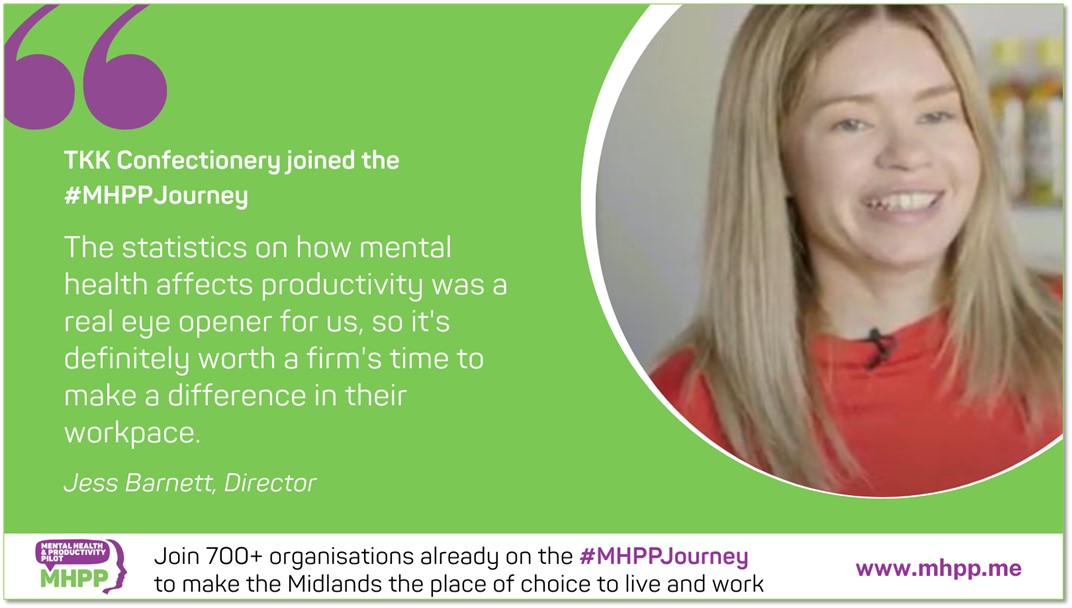
Fig. 2
The University of Derby has committed £4.4m of its own resources to secure co-investment from regional funding sources over the last 3 years. This has been driven through a collaborative approach to unlock regional development funding to deliver a holistic package of local growth projects. Collaborations have been developed with a range of both HE and non-HE partners within and beyond the D2N2 LEP area to ensure that SMEs in our region have access to the breadth and depth of support that they need. The following logic model (Fig. 3) illustrates our approach:
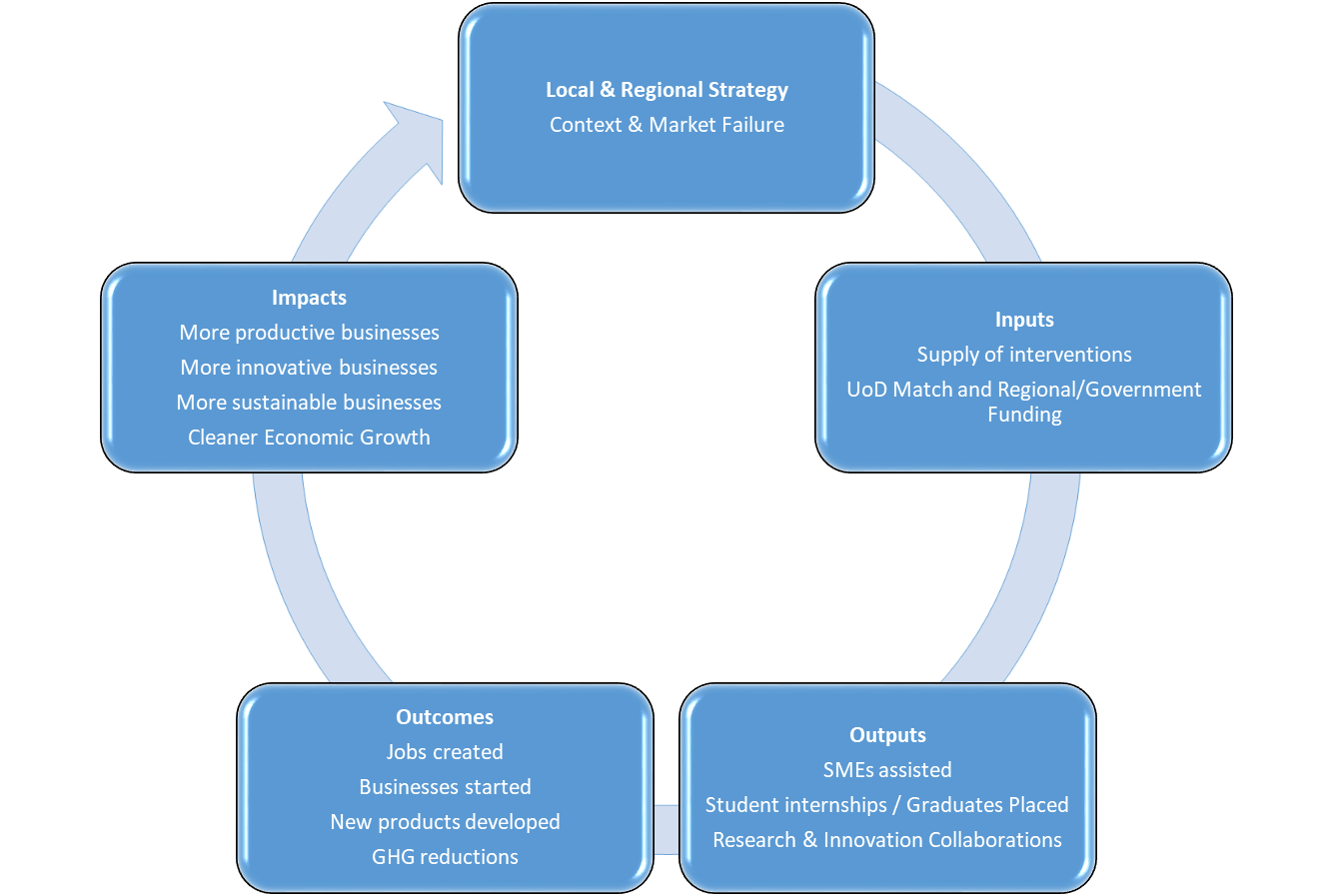
Fig. 3
Our Local Growth project portfolio has enabled us to provide a critical mass of support to SMEs in our region across a range of interventions as illustrated below:
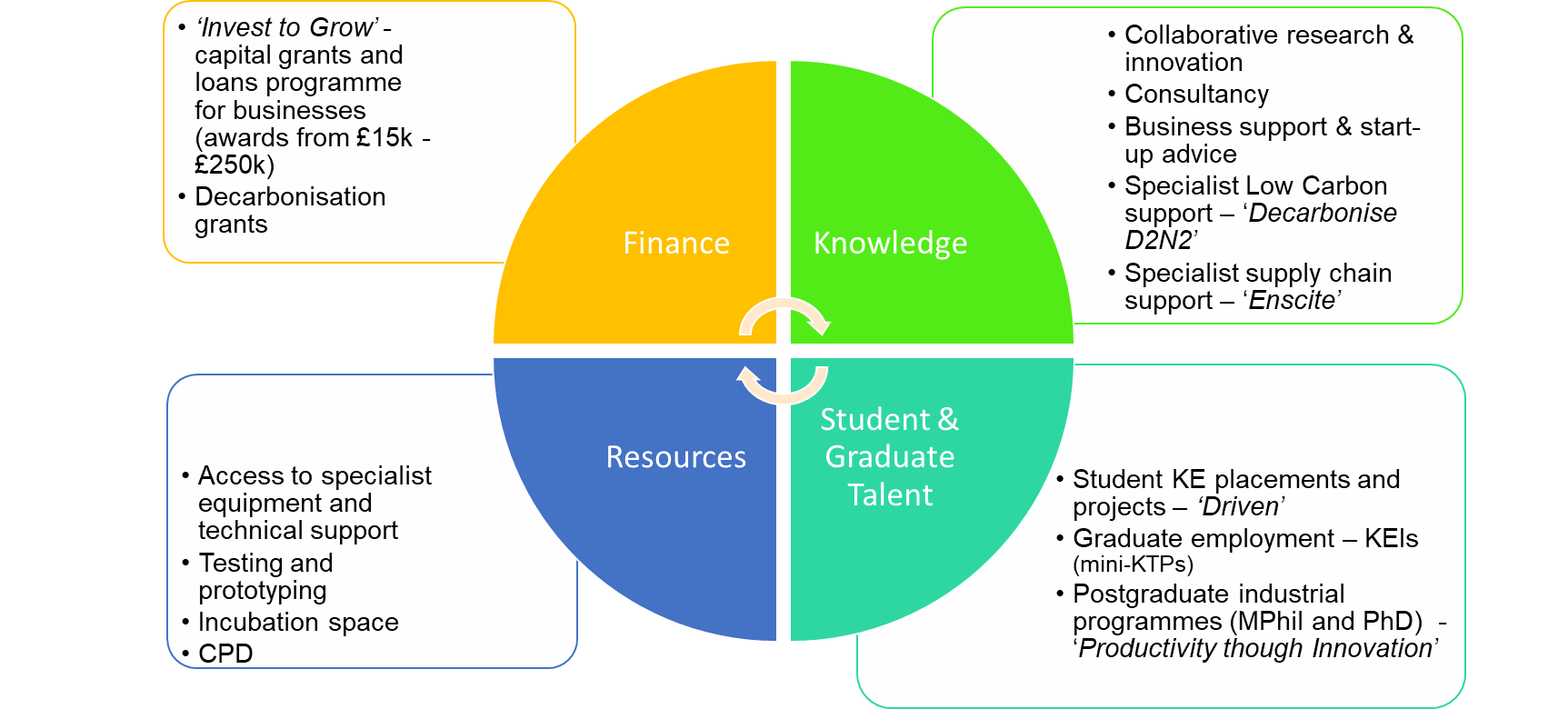
Fig. 4
Local Growth and Regeneration Led Capital Investment
Capital investment in local growth projects has focused on increasing research and innovation capacity in sectors aligned to local economic priorities. In 2022, a new Facility for Omics Research in Metabolism was launched with grant support from the D2N2 LEP to support the growing life sciences sector in Derbyshire and aligned to our Biomedical and Clinical Science Academic Theme.
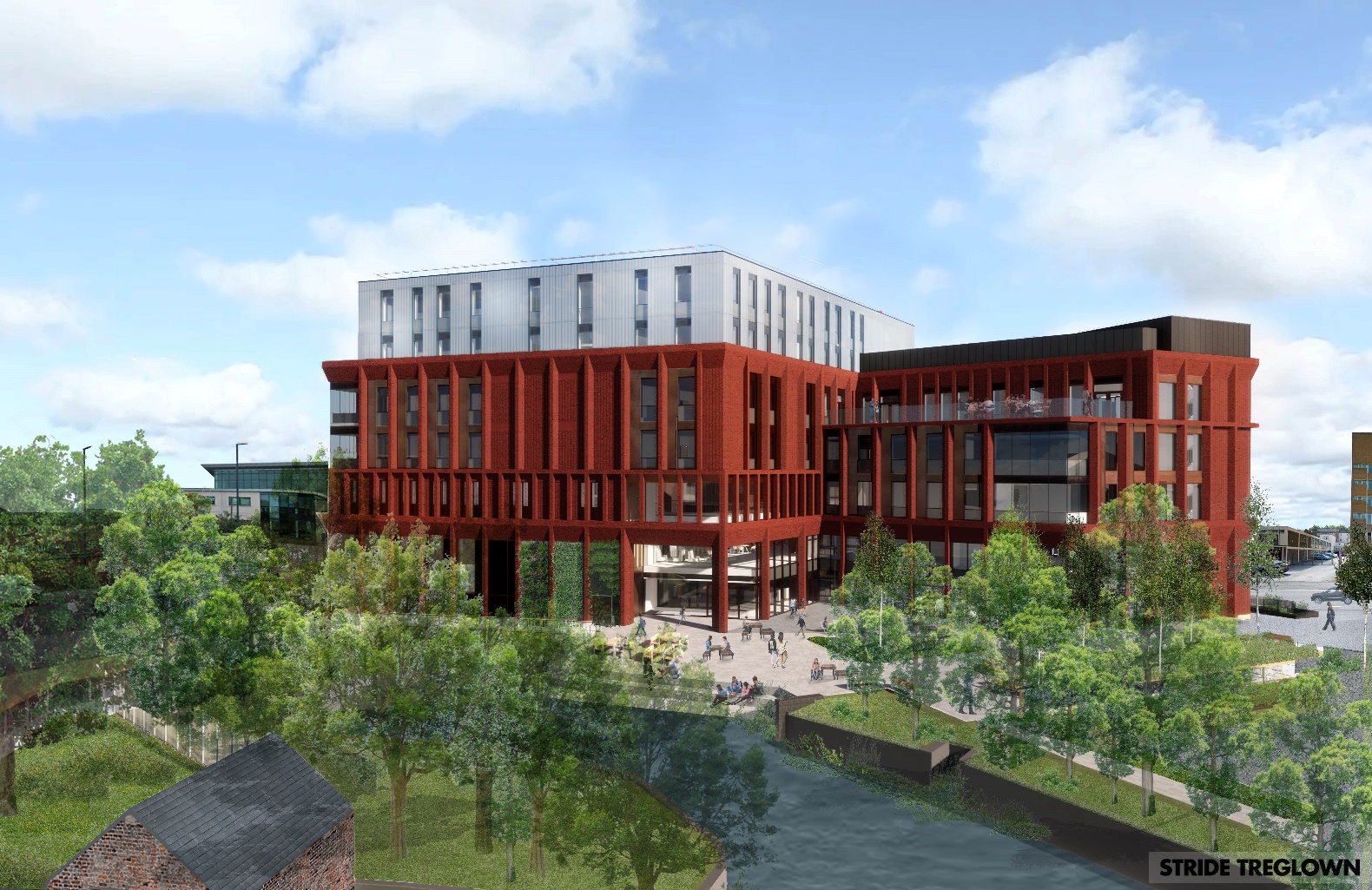
Fig. 5
In May 2021, the University announced its vision for a new iconic business school in the city centre. The realisation of this vision has commenced with the construction of a net zero carbon flagship building now underway. This £70m capital development will regenerate the area and place our Small Business Charter accredited Derby Business School at the heart of an emerging enterprise eco-system in the city building on our business start-up and scale-up support.
Aspect 3: Results
We undertake evaluations of our project activity as part of the project lifecycle. Work is currently underway with academics in our Regional Economic Observatory to analyse the impact of our regional project portfolio from a range of perspectives. The results will be used to identify what works and inform future plans and bids for funding.
The infographic below (Fig. 6) illustrates some of the key outputs and outcomes of our regional project activity over the last 3-years.
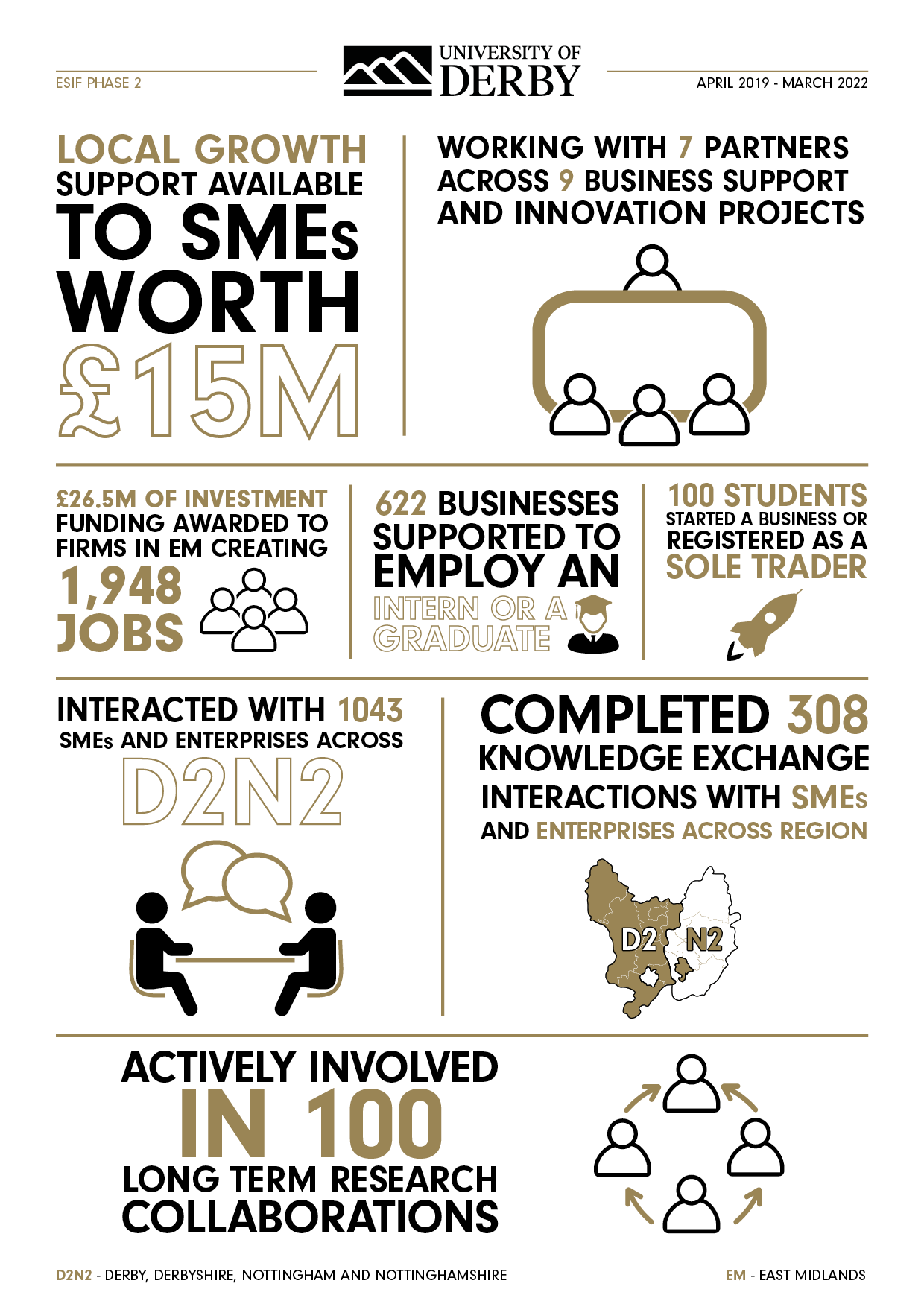
Fig. 6
The reach of our Derbyshire Festival of Business is illustrated in the infographic below (Fig. 7). Its success led to Vision Derbyshire funding delivery of a 2nd Festival in 22/23
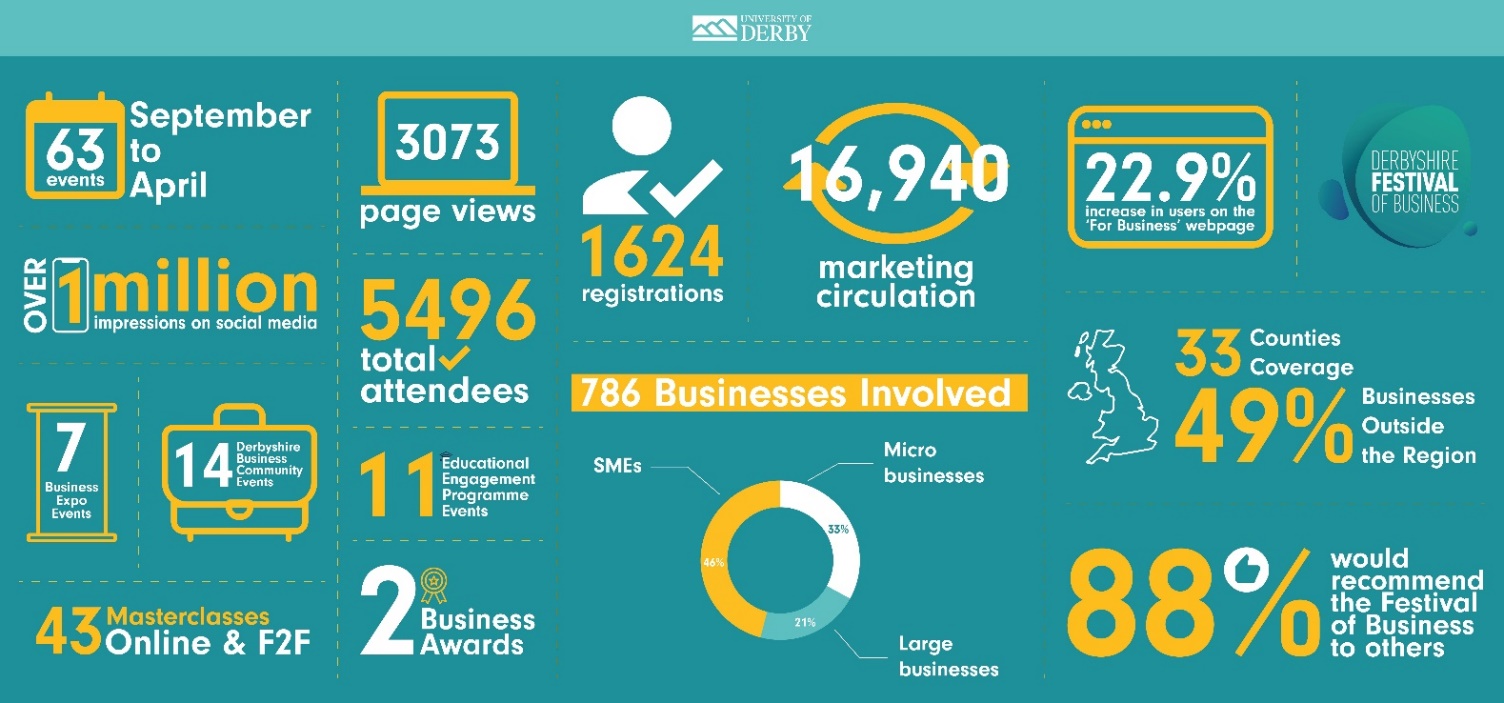
Fig. 7
A key outcome from our project portfolio is the establishment of longer-term collaborative relationships with businesses in our region. ‘Opening Doors’ applies not only to our student and graduate population but also our business community. Through our funded local growth programmes, we have been able to introduce businesses to collaboration with the HE sector and subsequently support them to move along the R&I value chain and build their capacity to engage, for example, with Innovate UK.
This is evidenced in our significant portfolio of Innovate UK KTPs.
UoD KTP Awards |
2019/20 | 2020/21 | 2021/22 |
|---|---|---|---|
| £847k | £1.03m | £638k |
Impact on our student experience and graduate outcomes is a critically important outcome of our local growth and regeneration activity. We actively seek ways to link knowledge exchange projects and programmes back to our curriculum whether it be to inspire a graduate start-up or to create opportunities to enhance the employability of our students through rewarding placements and internships or our Student Legal Advice Centre which also benefits the local community through free access to legal advice .
In terms of communication, a variety of channels are used including stakeholder magazines, annual impact reports, B2B e-shots, media, webpages and events. Specifically, our Civic Hub is an accessible way of communicating our Civic activity and outcomes.
Indeed, the way UoD engages with the public to share knowledge was recognised as outstanding in 2022 by the award of a Bronze Engage Watermark from the National Co-ordinating Centre for Public Engagement.
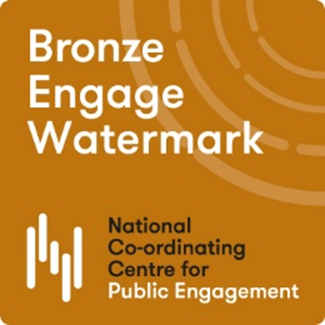


Public & Community Engagement
Summary of approach
The University of Derby (UoD) champions research, innovation and social mobility, and is committed to raising aspirations and improving the education, skills, health and wellbeing of current and future generations across Derbyshire. Our public and community engagement strategy, activity and evaluation supports this ambition and is intended to foster close collaboration and positive impacts for the people and local communities within our region and beyond. Operating under the umbrella of our Civic University Agreement (2022), our distinctive public engagement (PE) strategy, underpinned by excellent communications and built around three pathways (i. Civic; ii. Innovation & Research; iii. Learning & Teaching) has been awarded an NCCPE Watermark Bronze Award, evidencing our excellence and future focused commitment to public and community engagement.Aspect 1: Strategy
UoD is an anchor institution with a purpose to formally create valuable and effective partnership working that positively impacts upon our students, staff, and our communities whether they are local or global. At the heart of University life is the imperative to create new knowledge and understanding and we are clear in our vision that we achieve this through three critical priorities:
Moulding the next generation of game changers
Being a force for positive impact
Opening doors for everyone
Embedding this strategic vision, the University has explicitly integrated PE pathways into its Civic; Innovation & Research (I&R) and Learning & Teaching (L&T) strategies and activities. Modifying and adapting UKRI’s definition of PE to our University’s strengths, there are three cross-institutional governance pathways to engaging the public as participants, co-researchers and audiences in the University’s mission, activities and monitoring processes for future development.
Pathway 1: Civic & Community Committee (CCC)
The CCC is chaired by the Provost (L&T), the University Executive Board member with responsibility for the University’s Civic and PE agenda. The CCC ensures the effective development and implementation of the Civic University Agreement (CUA) – the umbrella under which all institutional Civic, community and PE sits (see Fig.1).
The CCC oversees, monitors, evaluates and make resource recommendations to Vice-Chancellor’s Executive (VCE) on PE activity, or how the University effectively engages the public in the Civic agenda as participants, co-researchers and audiences.
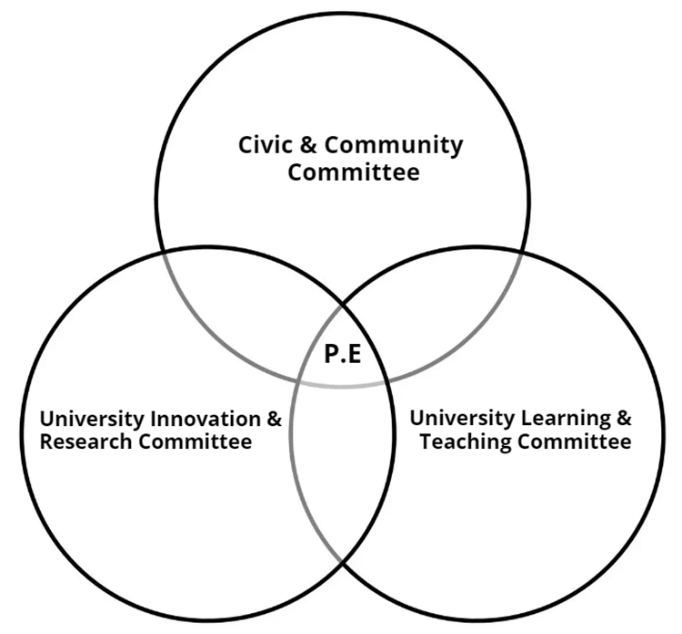
Pathway 2: University Innovation & Research Committee (UIRC)
UIRC is Chaired by the Provost (I&R), the University Executive Board member with responsibility for the University’s submission to the Research Excellence Framework (Mainstream QR 2022-23: £2,032,732), Knowledge Exchange Framework and HE-BCI (HEIF Income: 19/20 £1.1m; 20/21 £1.2 m; 21/22 £1.5m).
UIRC oversees, monitors, evaluates and make resource recommendations to VCE on how the University effectively engages the public in research as participants, co-researchers and audiences.
Pathway 3: University Learning & Teaching Committee (ULTC)
ULTC is chaired by the Provost (L&T). ULTC oversees, monitors, evaluates and make resource recommendations to VCE on how the University effectively engages the public in learning and teaching as participants, co-researchers and audiences.
Cross-cutting all pathways, the CUA was shaped by stakeholder mapping and extensive stakeholder consultation (e.g. Civic Forum, 27 June 2019; quarterly meetings with the University Court, external representation on the CCC, see Aspect 5). CUA Signatories meet three times per annum. Fig. 2 shows our CUA signatories:

Equality, Diversity and Inclusion is assured across all pathways by our 2019 People Strategy, with its’ themes of Talent and Success, Leadership and Management, EDI & Wellbeing and Collaboration. We are committed to developing a high performing and inclusive culture aligned with Athena Swan principles.
Corporate Communications also supports all three pathways and plays a key catalysing role in anchoring awareness, disseminating knowledge and providing discussion opportunities for public and community engagement practice across the Civic, I&R and L&T pathways.
Aspect 2: Support
UoD realises our strategic vision for public and community engagement through embedding staff and community support structures within our three PE pathways:
Pathway 1: Civic (governed by the CCC)
The tactical implementation of the CUA and the University’s Civic Goals is led by the Associate Professor (Civic), in collaboration with Corporate Communications (who have established the externally facing online Civic Hub and ‘contact us’ pages). There are two key support structures for staff and communities:
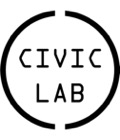
(i) Civic Lab (Fig.3). A structured academic opportunity for all staff, students and external partners to discuss cutting edge and experimental PE practice, share learning and understand PE’s intersections with the CUA and L&T/I&R pathways. Evidence of uptake and effectiveness since 2019 includes: 10 core team members (3 Professorial leads; 2 ECRS and 5 Researchers); 2 sold-out symposia (2021 & 2022); 60 staff engage regularly; supported over 50 organisations and delivered 10 partnership projects.
(ii) S.H.E.D. The University’s first CIC and a public space for conversations, a research incubation space, touring mobile arts and cultural site for social mobility and change instigator. It is an exemplar of PE in action (see Aspect 3), embodying a co-creative, needs-based approach to engagement.
Pathway 2: I&R (governed by UIRC)
The tactical implementation of the University’s research-informed PE is led by the Associate Professor (History & Impact), supported by a team of four Impact Officers, mapped to the needs of UoD’s four Colleges and six Academic Themes. Additional support for brokering external relationships and funding public and community engagement is provided by Research Development Managers, KE Managers; Business Development Managers and web-based digital service, the Business Gateway.
Academics have Individual Research Plans (IRPs), which include discussion of time for impact, knowledge exchange and PE. IRPs are formally registered through Academic Workload Planning (AWP). I&R works with People, Experience and Culture (formerly known as HR) to run the Professor/Associate Professor conferment processes. This includes a specific Knowledge Exchange route, modelled on inclusive best practice recruitment. The I&R EDI Working Group further ensures diverse voices are encouraged in research practice and promotion.
I&R supports public and community engagement through compiling the KEF and HE-BCI returns and provides expertise in research-informed PE through supporting REF Impact. Across four Colleges and six academic themes, three support vehicles for research-informed PE are offered:
Researcher Development Programme – Includes entry-level academic training on research-informed PE. Additional bespoke CPD resources are available to staff via I&R Intranet pages.
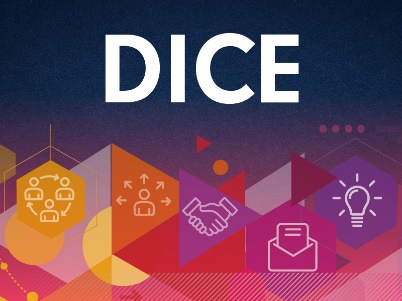
Impact Accelerator Funding (IAFs). Research-informed public and community engagement projects have been funded through the Sustaining University Research Expertise (SURE IAF, AY 20/21 £24,000 across 5 projects) and the KE-IAF (AY 21/22 HEIF £16,000 across 5 projects; QR Participatory Research £15,000, across 6 projects).
Pathway 3: L&T (governed by ULTC)
The tactical implementation of the University’s teaching and learning informed PE is strategically led by the Associate Provost (L&T) and tactically implemented by the Associate Professor (L&T) and the Head of Business Engagement and Employability.
Cross-university staff time through AWP is allocated to the embedding of PE and the Civic into the new Curriculum Design (CDF) and Learning, Teaching & Assessment Frameworks (LTAF) for taught modules. PE and the Civic is also being integrated into the curricula of the Academic Professional Apprenticeship (APA) & PG Cert. Learning & Teaching in Higher Education.
Aspect 3: Activity
Public and community engagement examples, informed by EDI and responsive to participant feedback include:
Pathway 1. Civic
As a Civic University, the Vice-Chancellor Chaired the local Opportunity Area (OA) Board (2017-2022), work which continues through the UNESCO City of Lifelong Learning. The Civic responds to community need, alleviating inequality and promoting opportunities for social mobility, aligning nationally with Levelling Up policy and The Purpose Coalition. S.H.E.D was developed in 2019, exemplifying co-production and creative research/practice. It has stimulated opportunities for 700+ creatives and 500 young people beyond the University (see videos). For example, Derby Voice was a 16-month project that resulted in a free, publicly accessible S.H.E.D artistic installation outside Derby Cathedral (16-19 July 2021). It featured content from seven artist commissions and worked with Derby Theatre and Derby County Community Trust to connect with five schools from the Derby OA. Derby Voice provided a unique opportunity to share young people's perspectives on Derby during Covid-19 and Black Lives Matters.
More broadly since its establishment, S.H.E.D (Fig.5) has showcased 50+ new works, engaged 12+ schools and reached 20,000+ people. Project partners include youth development organisations (This is Derby, Derby County Community Trust), drama outreach programmes (Derby Theatre; In Good Company) and visual arts organisations (Primary, Nottingham Contemporary, V&A Dundee). The team were finalists for Green Gown (2021) and University Alliance (2022) awards. S.H.E.D has connected with the Design Council, The British Academy and the National Centre for Academic and Cultural Exchange (NCACE).
S.H.E.D’s role alleviating regional inequalities is shared with other University Civic initiatives. These include: Community Chesterfield, which focuses on reducing health and social care inequalities; Widening Access engagement programmes with socio-economically disadvantaged learners, Progress to Success and Dancop; and the Multi-Faith Centre’s mission, a charity committed to faith-based diversity at Kedleston Road. Cultural opportunities are encouraged through University participation in Saturday Club and the Derby Book Festival.
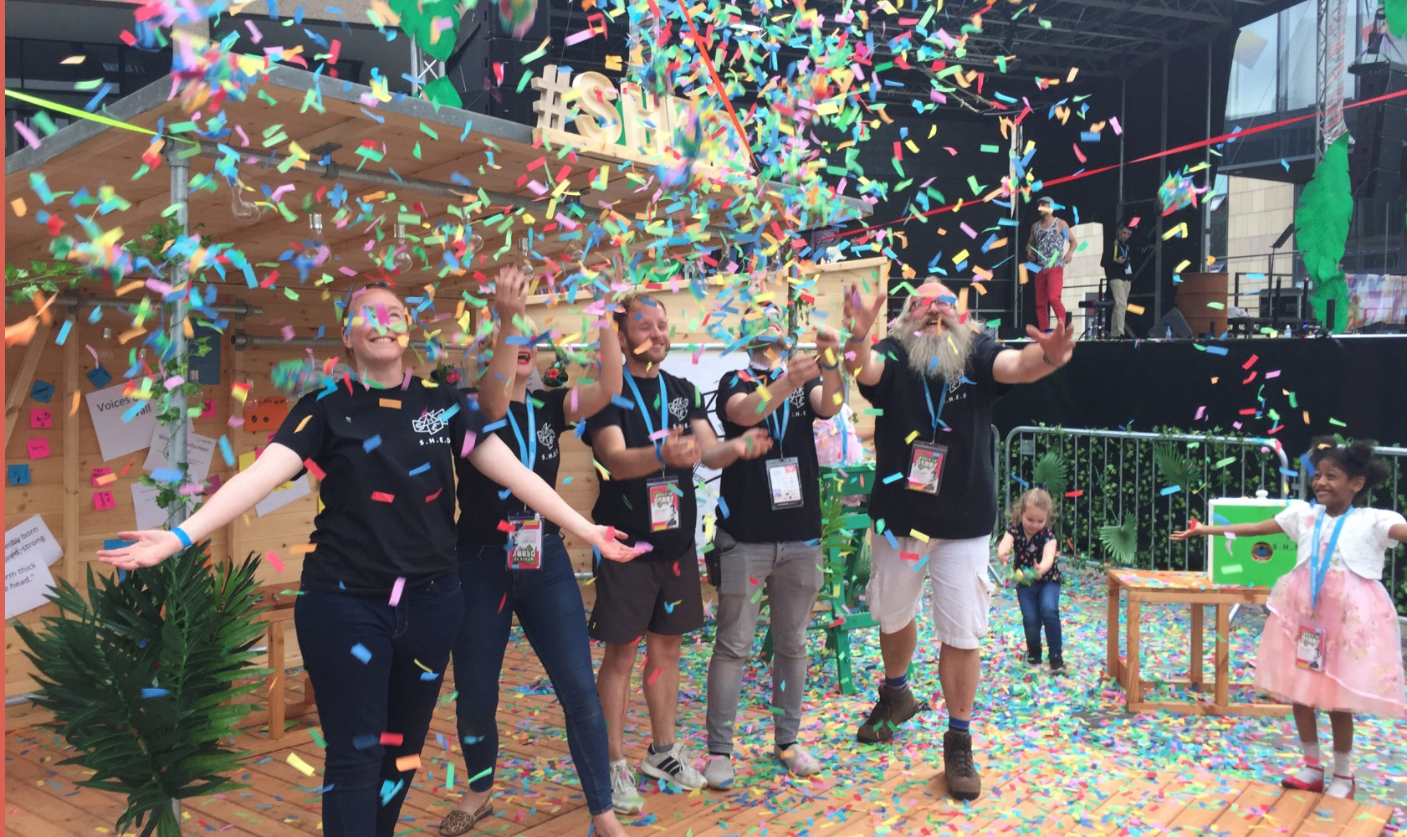

Our REF 2021 submission showcased mutually beneficial PE catalysed from our research base. Many of these activities were completed or are continuing to be progressed within KEF3’s eligibility period. The outcomes and impact of activities evidence national and/or international reach, but also often harmonise with Civic’s regional focus. UoD was a UK Being Human Festival Hub (12-22 November 2020) collaborating with Derby Museums to engage the public in histories of Derby and the World (see UoA 34 REF ICS). Manifesting a pandemic pivot online, FORMAT21 (12 March – 11 April 2021, Fig.6) continued to enhance Derby’s reputation as a centre for bringing new photography practice to international audiences (started in 2004 with QUAD, see video and UoA 32 REF ICS). The collaboration of our Nature Connectedness research with the Wildlife Trusts continues (started in 2015, see UoA 4 REF ICS), with the annual 30 Day’s Wild month-long PE programme. In 2020, the programme was proven to promote pro-conservation behaviours and participant happiness (see Aspect 4). The diversification of audiences for Nature Connectedness research has been supported via KE-IAF funding (AY 21/22 £5,945). Additionally, the relationship with Derby Museums has been deepened through SURE IAF (AY 20/21 £2,880) funding, to support rethinking the Museum’s public display of South Asian diaspora communities.
Pathway 3. L&T
The embedding of PE/Civic through the CDF and LTAF is embodied through the work of The Student Legal Advice Centre (SLAC). Students must volunteer at SLAC as part of the undergraduate Clinical Legal Skills module. SLAC opened its doors to the public in February 2019. The Centre aims to bridge a gap given the significant reduction in legal aid availability, engaging with community needs that cannot be met elsewhere. Services facilitate excellent student PE. The Centre benefits the public by offering student assistance in respect of: Family Law, Immigration Family Reunion and Criminal Injuries Compensation Authority claims.
HE-BCI data (AY’s 2021/22, 2020/21 and 2019/20)
Figures 7 and 8 quantify the aggregated breadth of PE activity undertaken by UoD’s four Colleges and six Academic Themes across the Civic, I&R and L&T PE pathways:
| HE-BCI data for free events | 2021/22 | 2020/21 | 2019/20 | |||
|---|---|---|---|---|---|---|
| Attendees | Academic staff time (days) | Attendees | Academic staff time (days) | Attendees | Academic staff time (days) | |
| Public lectures | 22,120 | 182 | 10,298 | 150 | 36,487 | 331 |
| Performance arts | 370 | 12 | 2,308 | 33 | 3,335 | 21 |
| Exhibitions | 1,526 | 28 | 1,030 | 201 | 2,620 | 10 |
| Other | 1,125,553 | 488 | 10,851 | 240 | 49,352 | 316 |
| Total | 1,149,569 | 710 | 24,487 | 624 | 91,794 | 678 |
| HE-BCI data for chargeable events | 2021/22 | 2020/21 | 2019/20 | |||
| Attendees | Academic staff time (days) | Attendees | Academic staff time (days) | Attendees | Academic staff time (days) | |
| Public lectures | 8,270 | 89 | 3,069 | 28 | 11,150 | 55 |
| Performance arts | 63,090 | 51 | 11,589 | 6 | 84,184 | 85 |
| Exhibitions | 400 | 4 | 0 | 0 | 1,665 | 0 |
| Other | 27,520 | 246 | 13,982 | 35 | 1,728 | 87 |
| Total | 99,280 | 390 | 28,640 | 69 | 98,727 | 227 |
PE data for AY 2020/21 was particularly Covid-affected, with much activity pivoted online. Since the loosening and ending of restrictions, in-person and hybrid forms of engagement have been embedded.
Aspect 4: Enhancing practice
The Civic Pathway has commissioned significant evaluations (e.g. Community Chesterfield evaluation reports and showcase event live scribe, May 2022, Fig.9; Widening Access’s engagement with East Midlands Widening Participation Research and Evaluation Partnership). Civic is also supported by the evaluation tools, expertise and staff made available through the I&R and T&R pathways.

Pathway 2. I&R: Impact Officers are available to offer one-one guidance on building evaluation into funding bids and research projects. Selected best practice evaluation tools have been curated and are available to academics on the I&R Intranet. HEIF funds are also used to fund independent evaluations of large-scale, multi-partner projects. I&R administer UoD’s Research Impact Repository (launched in 2022). This allows for the upload and confidential storage of PE and impact evidence. In-built is a report distilling engagement data for the HE-BCI return, which is biannually reported into the CCC, leading to reflection on practice and future actions. The system also supports monitoring of the number and quality of REF ICS under development, a KPI, which is regularly reviewed and acted upon at Academic Theme Executive Steering Groups and cross-institutionally at quarterly REF/Academic Themes Steering Committees.
Pathway 3. L&T: Through the LTAF, academics are trained to use online participation tools with students and external audiences (eg. Blackboard Polls/ Chat and Padlets). UoD has developed a bespoke evaluation framework in relation to Access and Participation Plans (PERU, Fig.9). The PERU toolkit is available to all staff and features ‘how to’ advice on methods which have universal resonance for all forms of evaluation, including PE (e.g., designing a theory of change; understanding the evaluation cycle).
Cross-institutionally, all staff have access to creating basic surveys through Microsoft Forms. Additionally, the four Colleges provide specialist evaluation tools, resource and expertise. The Colleges of Health, Psychology and Social Care (HPSC) and Business, Law and Social Sciences (BLSS) subscribe to Qualtrics. In Arts, Humanities and Education (AHE), academics have worked with partners and funders to ensure independent evaluation of the Being Human Festival Hub (provider: Free Thought Research Ltd) and FORMAT21 (providers: S4W Ltd; Troika). There is also College-based academic evaluation expertise (e.g., Clare Roscoe in the College of Science and Engineering [COSE], Mark Gilman in BLSS, ICEGS in AHE, Miles Richardson and Fiona Holland in HPSC). For example, Richardson worked with The Wildlife Trusts to evaluate 5 year’s and over 1,000 survey responses to gauge the positive benefits of public participation in 30 Day’s Wild (published May 2020, quality assured through double-blind peer review of formative data analysis).
Aspect 5: Building on success
The CCC is chaired by the Provost (L&T), the University Executive Board member with responsibility for the University’s Civic and PE agenda. Its membership includes key internal Civic and PE stakeholders such as the Associate Professor (Civic), the Head of Corporate Communications, representatives of I&R and the academic colleges. Involving publics and communities in the oversight and steering of the CCC’s work, there are also naturally external representatives drawn from the city and county, community organisations ranging across, art and culture to sport, leisure and volunteering.
The achievement of each pathway’s success and performance indicators is overseen by the University’s CCC (see Aspect 4). The CCC provides oversight, monitoring and evaluation of all institutional Civic and PE activity and holds the responsibility of formulating resource recommendations on the same to VCE. The CCC’s reporting structure is two-fold: first it reports on a monthly basis to VCE, which is the University's senior Executive leadership group with responsibility for the University’s strategic direction and executive management; and second, the CCC reports on a six-month cycle into the University's Governing Council which is the University's supra-governance organisation.
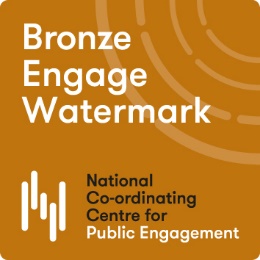
Note You are currently viewing the latest version of this narrative statement. View the previous version as published in previous iterations of the KEF (KEF1 and KEF2)